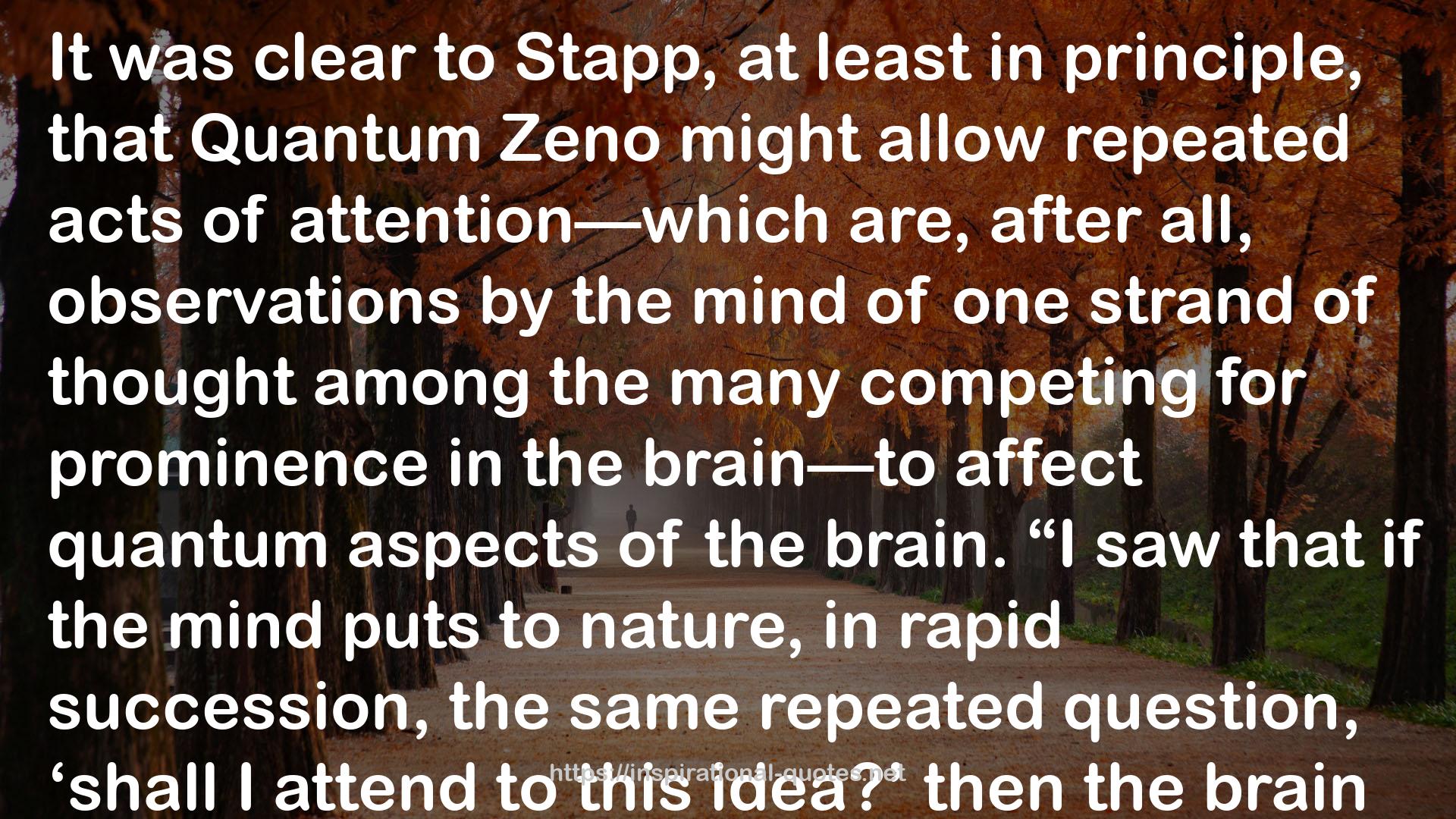" It was clear to Stapp, at least in principle, that Quantum Zeno might allow repeated acts of attention—which are, after all, observations by the mind of one strand of thought among the many competing for prominence in the brain—to affect quantum aspects of the brain. “I saw that if the mind puts to nature, in rapid succession, the same repeated question, ‘shall I attend to this idea?’ then the brain would tend to keep attention focused on that idea,” Stapp says. “This is precisely the Quantum Zeno Effect. The mere mental act of rapidly attending would influence the brain’s activity in the way Jeff was suggesting.” The power of the mind’s questioning (“Shall I pay attention to this idea?”) to strengthen one idea rather than another so decisively that the privileged idea silences all the others and emerges as the one we focus on—well, this seemed to be an attractive mechanism that would not only account for my results with OCD patients but also fit with everyone’s experience that focusing attention helps prevent the mind from wandering. Recall that Mike Merzenich had found that only attended stimuli have the power to alter the cortical map, expanding the region that processes the stimuli an animal focuses on. And recall Alvaro Pascual-Leone’s finding that the effort of directed attention alone can produce cortical changes comparable to those generated by physical practice at the piano. It seemed at least possible that it was my OCD patients’ efforts at attention, in the step we called Refocusing, that caused the brain changes we detected on PET scans. "
― Jeffrey M. Schwartz , The Mind and the Brain: Neuroplasticity and the Power of Mental Force
